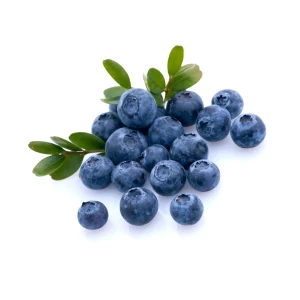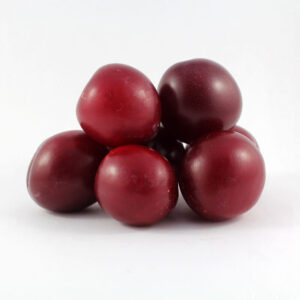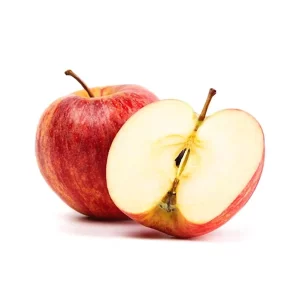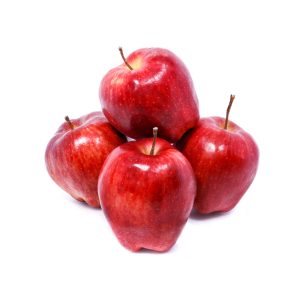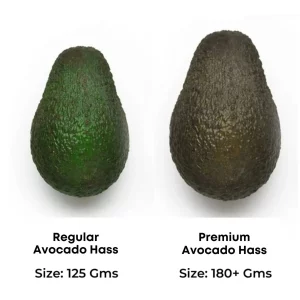Imagine a sun-drenched summer afternoon, where the sweet, tropical scent of a perfectly ripe mango fills the air. Its golden flesh, bursting with juicy flavour, instantly transports you to an exotic paradise. But beyond the irresistible taste, mangoes hold a treasure trove of benefits that go far beyond their tempting appeal. From supporting digestion to boosting skin health, this vibrant fruit has much more to offer than you might think. Let’s explore the wonders of mangoes and uncover what makes them nature’s golden gift.
Nutritional Content
Here’s a general breakdown of the nutrition content of mango (per 100 grams of fresh mango):
| NUTRITION | CONTENT |
| Energy | 60 kcal |
| Protein | 0.82 g |
| Fats | 0.38 g |
| Carbohydrates | 15 g |
| Fibre | 1.6 g |
| Sugar | 13.7 g |
| Potassium | 168 mg |
| Iron | 0.16 mg |
| Vitamin C | 36.4 mg |
| Beta-Carotene | 640 µg |
| Vitamin A | 1080 IU |
| Vitamin K | 4.2 µg |
Nutritional Content
Here’s a general breakdown of the nutrition content of mango (per 100 grams of fresh mango):
Health Benefits of Mango
Rich in Antioxidants
Mangoes are loaded with polyphenols like mangiferin, quercetin, and gallic acid, which act as potent antioxidants. These compounds help neutralise free radicals, which can otherwise damage cells, leading to chronic conditions like heart disease and cancer. Mangiferin, in particular, has been shown to have anti-inflammatory and anticancer properties.
Supports Immune Health
Mangoes are packed with immune-boosting nutrients, primarily vitamin C. This vitamin is essential for stimulating white blood cell production, which defends the body against pathogens. Additionally, mangoes contain vitamin A and other carotenoids, which further strengthen the immune response by supporting the health of mucous membranes that act as the body’s first line of defence .
Promotes Digestive Health
High in fibre and digestive enzymes like amylases, mangoes help break down carbohydrates and improve digestion. The fibre in mangoes not only prevents constipation but also promotes the growth of healthy gut bacteria, which supports better nutrient absorption and overall digestive health.
Improves Skin Health
Mangoes are a powerhouse for skin health, containing vitamins A, C, and E, which are vital for skin repair and hydration. Vitamin A helps reduce acne and promotes skin renewal, while vitamin C plays a role in collagen production, making the skin firm and youthful. Vitamin E further protects the skin from oxidative damage and environmental stressors.
Supports Heart Health
The combination of potassium, magnesium, and antioxidants in mangoes contributes to cardiovascular health. Potassium helps balance sodium levels, thereby regulating blood pressure and preventing hypertension. The fibre content in mangoes can also reduce cholesterol levels, lowering the risk of heart disease.
Promotes Eye Health
Mangoes are rich in beta-carotene and vitamin A, which are crucial for maintaining good vision and preventing eye-related issues like night blindness and age-related macular degeneration. Beta-carotene also acts as an antioxidant, protecting the eyes from oxidative stress caused by free radicals.
Promotes Brain Health
Mangoes contain vitamin B6, which is essential for brain function. This vitamin helps in the production of neurotransmitters like serotonin and dopamine, which regulate mood and cognitive function. The antioxidants in mangoes further protect brain cells from oxidative damage, potentially lowering the risk of neurodegenerative diseases.
Beneficial for Pregnant Women
Mangoes provide significant amounts of folate, a crucial nutrient during pregnancy for the healthy development of the foetal brain and spinal cord. The fruit also supplies other important nutrients like magnesium, potassium, and fibre, which help prevent pregnancy-related complications like constipation and hypertension.
Supports Weight Management
Low in calories but high in fibre, mangoes are a great option for those looking to manage their weight. The fibre in mangoes helps promote a feeling of fullness, preventing overeating. The fruit also has a high water content, which helps maintain hydration and support metabolic processes.
Anti-inflammatory Properties
Mangiferin, a key antioxidant in mangoes, has shown significant anti-inflammatory effects. It may help reduce inflammation markers in the body, which are linked to conditions like arthritis and other chronic inflammatory diseases
-
Fruit Baskets
An Apple A Day Basket (Assorted) – 4pc
₹212.00Original price was: ₹212.00.₹148.00Current price is: ₹148.00. -
Fruit Baskets
Valentine Special Basket (Assorted) – 9 pc
₹599.00Original price was: ₹599.00.₹499.00Current price is: ₹499.00. -
Berries and Grapes
Blueberry (Peru)
₹280.00Original price was: ₹280.00.₹224.00Current price is: ₹224.00. -
Exotic Fruits
Plum (China) – 6pc
₹120.00Original price was: ₹120.00.₹84.00Current price is: ₹84.00. -
Apples and Pears
Apple Royal Gala (Turkey) – 2pc
₹95.00Original price was: ₹95.00.₹67.00Current price is: ₹67.00. -
Apples and Pears
Apple Red Delicious (Turkey) – 2pc
₹117.00Original price was: ₹117.00.₹82.00Current price is: ₹82.00. -
Apples and Pears
Pear Green (South Africa) – 2pc
₹150.00Original price was: ₹150.00.₹130.00Current price is: ₹130.00. -
Exotic Fruits
Kiwi Green (Chile) – 3pc
₹152.00Original price was: ₹152.00.₹106.00Current price is: ₹106.00. -
Exotic Fruits
Avocado Hass (Tanzania) – 1pc
₹150.00Original price was: ₹150.00.₹105.00Current price is: ₹105.00.
When to Avoid Mango
While mangoes offer numerous health benefits, there are certain situations where consuming them might not be ideal:
Allergic Reactions : Some individuals may be allergic to mangoes, especially due to urushiol, a compound found in the peel. This can cause contact dermatitis, leading to itching, redness, or swelling, particularly around the mouth or lips. People with a history of poison ivy or oak allergies should be cautious before consuming mangoes.
Gastrointestinal Issues: Mangoes are rich in fiber, which is generally beneficial for digestion. However, overconsumption can cause gastrointestinal discomfort, such as bloating, gas, or diarrhea, especially in individuals with sensitive stomachs or irritable bowel syndrome (IBS).
Latex-Fruit Syndrome : People with latex allergies may experience a cross-reactivity to certain fruits, including mangoes. This can cause symptoms like itching, swelling, or digestive upset. It’s advisable for individuals with latex allergies to consult their doctor before consuming mangoes.
Common Mango Varieties
1. Alphonso (Hapus)
– Origin : India (Ratnagiri region)
– Taste : Rich, sweet, and aromatic with a smooth texture.
– Benefits : High in vitamins A and C, enhances skin health, and boosts immunity.
2. Haden
– Origin: United States (Florida)
– Taste: Sweet and juicy with a slightly tangy flavour, firm texture.
– Benefits: Good source of antioxidants, promotes digestive health, and supports eye health.
3. Tommy Atkins
– Origin: United States and Latin America
– Taste: Mildly sweet with a fibrous texture and tropical aroma.
– Benefits: Rich in fibre, helps regulate blood sugar, and provides vitamin C for immune support.
4. Kesar
– Origin: India (Gujarat)
– Taste: Sweet, juicy, and flavorful with a vibrant orange colour.
– Benefits : High in vitamins A and C, supports skin health, and aids digestion.
5. Kent
– Origin : Mexico, Peru, and the United States
– Taste: Sweet, juicy, and fiberless with a smooth texture.
– Benefits: Rich in antioxidants, promotes heart health, and supports healthy skin.
6. Langra
– Origin: India
– Taste: Sweet with a slightly tangy flavour and fibrous texture.
– Benefits: Rich in vitamins and minerals, aids in digestion, and helps boost immunity.
7. Dasheri
– Origin: North India and Pakistan
– Taste: Sweet and aromatic with a soft texture.
– Benefits: High in vitamins A and C, supports eye health, and promotes digestion.
8. Palmer
– Origin : Florida and Brazil
– Taste : Sweet and mild with a smooth, juicy texture.
– Benefits : High in vitamin C and antioxidants, supports immune health, and aids digestion.
9. Anwar Ratol
– Origin : Pakistan
– Taste : Exceptionally sweet with a small, fibrous flesh.
– Benefits : High in vitamins, promotes skin health, and boosts energy levels.
10. Banganapalli
– Origin : South India
– Taste : Sweet, juicy, and fiberless with a rich flavour.
– Benefits : Rich in vitamins A and C, supports eye health, and enhances skin glow.
11. Fairchild
– Origin : Florida
– Taste : Sweet and slightly tangy with a smooth texture.
– Benefits : High in antioxidants and vitamins, supports immune function, and promotes digestive health.
12. White Chaunsa
– Origin : Pakistan
– Taste : Exceptionally sweet and aromatic.
– Benefits : High in vitamins and minerals, boosts immunity, and promotes healthy skin.
Here are some common ways to consume mango
Fresh Slices
– Simply peel and slice the mango into wedges or cubes for a refreshing snack. This is one of the easiest and most popular ways to enjoy mango.
Smoothies
– Blend mango with yoghurt, milk, or other fruits to create a delicious and creamy smoothie. Mango pairs well with ingredients like banana, spinach, and coconut.
Salads
– Add diced mango to salads for a sweet twist. It complements greens, avocado, nuts, and a variety of dressings. Mango salsa is a popular variation that adds a tropical flair.
Desserts
– Use mango in desserts like puddings, ice creams, or cakes. Mango mousse and mango cheesecake are popular treats that showcase the fruit’s natural sweetness.
Juices and Beverages
– Extract the juice from ripe mangoes to create refreshing drinks. Mango juice can be enjoyed on its own or mixed with other juices for added flavour.
Toppings
– Use diced mango as a topping for yogurt, oatmeal, or pancakes to add natural sweetness and flavor.
Key Takeaways
Mangoes are a nutrient-dense fruit offering a wide range of health benefits. They are rich in antioxidants like mangiferin, quercetin, and gallic acid, which help combat oxidative stress and may reduce the risk of chronic diseases. With high levels of vitamins A and C, mangoes support immune health, improve skin vitality, and promote eye health. Their fiber content aids digestion, helps manage weight, and supports heart health by lowering cholesterol levels. However, caution is advised for individuals with allergies, particularly to urushiol, and those with gastrointestinal sensitivities. Pregnant women can benefit from the folate found in mangoes, making it a nutritious choice during pregnancy. Overall, incorporating mangoes into your diet can contribute to better health and well-being.
-
Fruit Baskets
An Apple A Day Basket (Assorted) – 4pc
₹212.00Original price was: ₹212.00.₹148.00Current price is: ₹148.00. -
Fruit Baskets
Valentine Special Basket (Assorted) – 9 pc
₹599.00Original price was: ₹599.00.₹499.00Current price is: ₹499.00. -
Berries and Grapes
Blueberry (Peru)
₹280.00Original price was: ₹280.00.₹224.00Current price is: ₹224.00. -
Exotic Fruits
Plum (China) – 6pc
₹120.00Original price was: ₹120.00.₹84.00Current price is: ₹84.00. -
Apples and Pears
Apple Royal Gala (Turkey) – 2pc
₹95.00Original price was: ₹95.00.₹67.00Current price is: ₹67.00. -
Apples and Pears
Apple Red Delicious (Turkey) – 2pc
₹117.00Original price was: ₹117.00.₹82.00Current price is: ₹82.00. -
Apples and Pears
Pear Green (South Africa) – 2pc
₹150.00Original price was: ₹150.00.₹130.00Current price is: ₹130.00. -
Exotic Fruits
Kiwi Green (Chile) – 3pc
₹152.00Original price was: ₹152.00.₹106.00Current price is: ₹106.00. -
Exotic Fruits
Avocado Hass (Tanzania) – 1pc
₹150.00Original price was: ₹150.00.₹105.00Current price is: ₹105.00.





